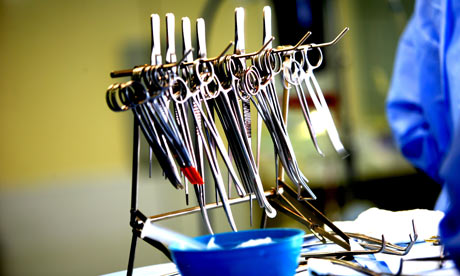
More than 7,500 people are waiting for an organ to save their lives, and three people die every day while they wait. NHS Blood and Transplant is calling on people to reduce waiting times for a transplant by signing up to the NHS Organ Donor Register. One donor can save up to nine lives and many more can be saved through tissue donation.
What is the NHS Organ Donor Register?
It is a confidential, computerised database that holds the details of more than 18 million people who have decided that they want to donate organs after their death. The register is used to help establish whether a person wanted to donate and, if so, what they wanted to donate.
Who can donate an organ?
Any person of any age, race or gender can donate an organ. Having a medical condition does not necessarily prevent a person from becoming an organ or tissue donor. The decision about whether some or all organs or tissue are suitable for transplant is made by a healthcare professional, taking into account your medical history. There are only two conditions where organ donation is ruled out completely. A person cannot become an organ or tissue donor if they have been diagnosed with HIV or if they have, or are suspected of having, vCJD.
Which organs can be transplanted?
Kidneys, heart, liver, lungs, pancreas and the small intestine can all be transplanted. Techniques are improving all the time and it may soon be possible to transplant other parts of the body.
Can you donate an organ while you are still alive?
Yes, in some cases. The shortage of organs has led to an increasing number of organ donations by living people. The most common organ donated by a living person is a kidney, as a healthy person can lead a completely normal life with only one functioning kidney. Part of a liver can be transplanted and it may also be possible to donate a segment of a lung and, in a very small number of cases, part of the small bowel. Living donors are often a close relative of the recipient but may on occasion be a partner or close friend. Donors may also offer to give a kidney to someone who is on the waiting list for a transplant but whom they have never met (non-directed altruistic donation).
What is tissue donation?
Tissue donation is the gift of tissue such as corneas, skin, bone, tendons, cartilage and heart valves. Most people can donate tissue. Unlike organs, it may be possible to donate tissue up to 48 hours after a person has died.
Why are even more donors needed?
Over 7,500 people are currently waiting for an organ. Every year 1,000 people die while waiting for an organ transplant and many others die before they even get on to the transplant waiting list. The gap between the number of organs donated and the number of people waiting for a transplant is increasing. Only a small number of people die in circumstances where they are able to donate their organs. Because organs have to be transplanted very soon after someone has died they can only be donated by someone who has died in hospital. Usually organs come from people who are certified dead while on a ventilator in a hospital intensive care unit, generally as a result of a brain haemorrhage, a major accident such as a car crash, or a stroke.
Do I need to discuss my wishes with my close family and friends?
Yes, they need to know what you would like to happen after your death so they can confirm your wishes to NHS staff. If you register your wishes without telling the people closest to you, it may come as a surprise at a time when they are trying to deal with their loss.
Do I need to write about my organ donation wishes in my will?
No. By the time your will is read it will be far too late for you to become a donor. This is why it is so important to let your family and friends know now that you have joined the register.
Can I be sure doctors will try to save me if I am registered as a potential organ donor?
Yes. Health professionals have a duty of care to try and save life first. If, despite their efforts, the patient dies, organ and tissue donation can then be considered and a completely different team of donation and transplant specialists would be called in.
Will my details be given to any other organisations?
No. The information you provided is only used by NHSBT to register your wishes on the NHS Organ Donor Register and by healthcare professionals in the event of your death.
Can I change my mind?
Yes. You can ring 0300 123 23 23 or visit organdonation.nhs.uk and fill in the form asking for your name to be removed. Also, it's important to let your family know.
How do I sign up?
Signing up to the NHS Organ Donor Register is quick and simple. You can join by visiting organdonation.nhs.uk, calling 0300 123 23 23, or texting SAVE to 84118.
• Got a question about organ donation that hasn't been answered here? Visit the FAQs section at organdonation.nhs.uk or email enquiries@nhsbt.nhs.uk

